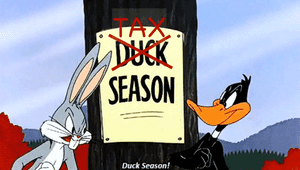Saving on monthly expenses - A Cautionary Tale

Today I want to share a cautionary tale about trying to save money on my mobility bill, and how its important to balance time, effort, and aggravation vs dollars saved.
An often repeated piece of personal finance advice is to minimize recurring expenses wherever possible, such as utility bills, cell phone, other subscriptions etc. Small increases in these may not seem like much when paying on a monthly basis, but when calculated on a yearly basis it can really add up. One way to keep on top of this is to set aside some time once a year to call all your service providers and negotiate a better rate (or get rid of the service altogether if its not providing any value).
Stories like this one of saving ~$1000 on a yearly basis from just an hour on the phone are very compelling. So when a few months ago I received a notice of my cell phone bill going up by $3/month, I was very motivated to call my provider to avoid this increase, and perhaps get an even better price. $3/month works out to $36/year so that's certainly worth a quick phone call (ignoring taxes for this story, just to keep all the numbers simple). Here's how it went:
One quick note first - all the customer service reps I spoke to on this journey were very nice and doing their best to be helpful. If this comes off as sounding critical, it's my frustration at the provider/system as a whole, not any individual working there.
Call One
The first customer service rep (CSR) I spoke to had some great news. Not only could she save me the $3/month increase, there was a new plan available that would save me $35/month compared to my current rate. I carefully confirmed with her that all the features of my existing plan would still be available on the new plan and she assured me that was the case. So I went ahead with the switch.
Duration: Half hour on the phone.
At this point I was feeling very pleased with myself having saved $35 * 12 = $420/year with just a half hour of work. But little did I know what was to come. About 10 minutes later I received an email confirmation from the service provider about the plan change. Looking over the features, there was no data listed. This was a big problem as I definitely had a data plan before.
Call Two
So I called back the provider. This CSR told me that the previous CSR had made a mistake. The new plan I was on had no data. The cheapest data plan they had available was $5/month more than what I was paying originally. At this point it was better to go back to my original + $3/month increase (the original notification that had started this whole process).
Now this is where things started to get hairy. This CSR told me it was impossible to go back to my old plan because it no longer existed. How is that possible? It was just there 15 minutes ago before making the switch. She told me it was a legacy plan that was no longer available. My options were to stay with the new cheaper plan but have no data, or go up to the more expensive plan.
None of the personal finance articles I had read about saving money on monthly expenses mentioned this risk of... let's call it an administrative snafu. I asked the CSR if there was anything else she could do as it wasn't right for the previous CSR to have removed me from my old plan if the new plan didn't have all the features she had confirmed. After much time on hold I got transferred to another CSR who said she would try and help me. Eventually she found an option where I could pay $5/month less than my original plan, and it would include 1GB of data. This was a lot less data than what I had originally, but could work, certainly during Covid when I don't go out much in any case. So I told her to go ahead with the switch.
Duration: One hour on the phone.
After all this effort, I had managed to save only $5/month * 12 = $60/year, with one and a half hours of work total. Together with loss of data, this didn't feel like such an achievement. But oh well, I tried to follow the personal finance savings advice. Unfortunately things got worse.
Call Three
When next month's bill arrived, I was very surprised that it was $12 higher than my old bill! How could this be possible when I had switched to a cheaper plan? Once again on the phone with a CSR. This one explained to me that the reason for the higher bill was due to pro-rating because I had switched in the middle of the billing period. But this explanation didn't pass the sniff test. When switching from a more expensive to cheaper plan mid cycle (my switch was about half way through), the next bill should have 50% of the charge from the expensive plan, and 50% from the cheaper plan, which would end up with a bill somewhere in between the expensive and cheaper plan. This post has a simple explanation of pro-rating. It's impossible for the next bill to end up greater than the more expensive plan. It must, by definition of pro-rating come out somewhere in between. But apparently subscription arithmetic is not part of the training curriculum at this service provider as the CSR kept insisting the reason for the $12 increase was due to pro-rating.
In the meantime I kept digging into the bill trying to make sense of it, and finally found the culprit. My provider had added a $12 service charge for changing plans mid cycle. When I mentioned this to the CSR he dropped the pro-rating argument and confirmed there is a charge for switching mid cycle. I pointed out that the previous CSR had not informed me of this, had I known, would have waited till end of billing cycle to change plans. This CSR agreed I should have been told and issued me a credit (to appear on next bill) for the service charge.
Duration: Another hour on the phone.
For those keeping track, that's two and a half hours of work for a savings of $60/year, less data, and a whole lot of aggravation. This definitely wasn't mentioned in any of the personal finance articles about saving on monthly expenses. They make it seem so simple, just a quick phone call to your service providers and poof, money saved. The story continues...
About a week later, I received another notification about my eligibility for yet another plan that was $15/month less than my original and had nearly as much data as I used to have. Had to give this some serious thought - should I call and switch plans yet again? The potential savings were $15/month * 12 = $180/year. But what if things went sideways again? Decided to take a chance as I had already spent so much time, might as well try to save a little more. Kind of a sunk cost fallacy but with regards to time.
Call Four
On the phone again, another CSR. Again confirmed every single feature was available on the new plan. Again it was mid-cycle, and CSR made no effort to warn me about the mid cycle service charge, but I had learned my lesson and insisted on the plan change taking effect at the beginning of the next cycle. Who knows whether it's a lack of training that the CSRs don't mention the mid cycle service charge or a strategy on the part of the provider, figuring most customers won't bother to challenge it.
This time, things worked out fine. My next bill for the new plan arrived at $15 less than what I was paying before, and no surprise charges.
Duration: Half hour on the phone.
Final Thoughts
The final tally is 3 hours of work to save $180/year and staying at roughly equivalent service, which works out to $60/hour for my efforts. Was it worth it? Well I'm happy to be saving money but not sure it was worth all the aggravation - potential loss of service, all that time on hold, debating with CSRs. This is something to think about when embarking on a money saving task - how much money could be saved vs the value and opportunity cost of your time to do it. It may not always be worth it.



